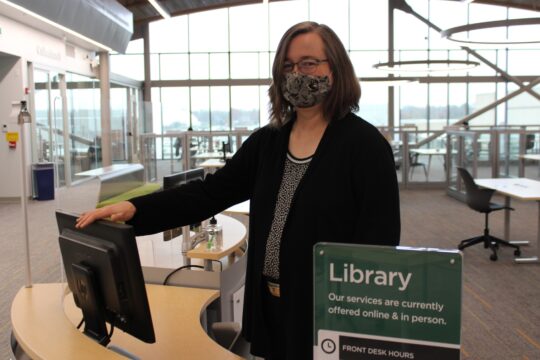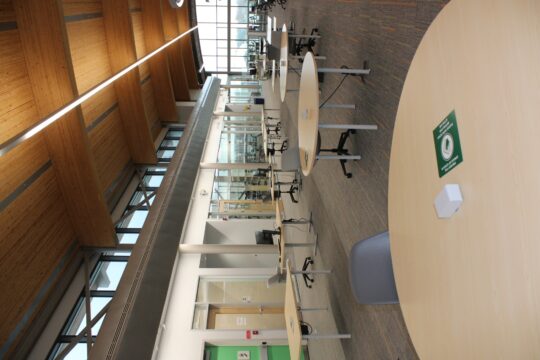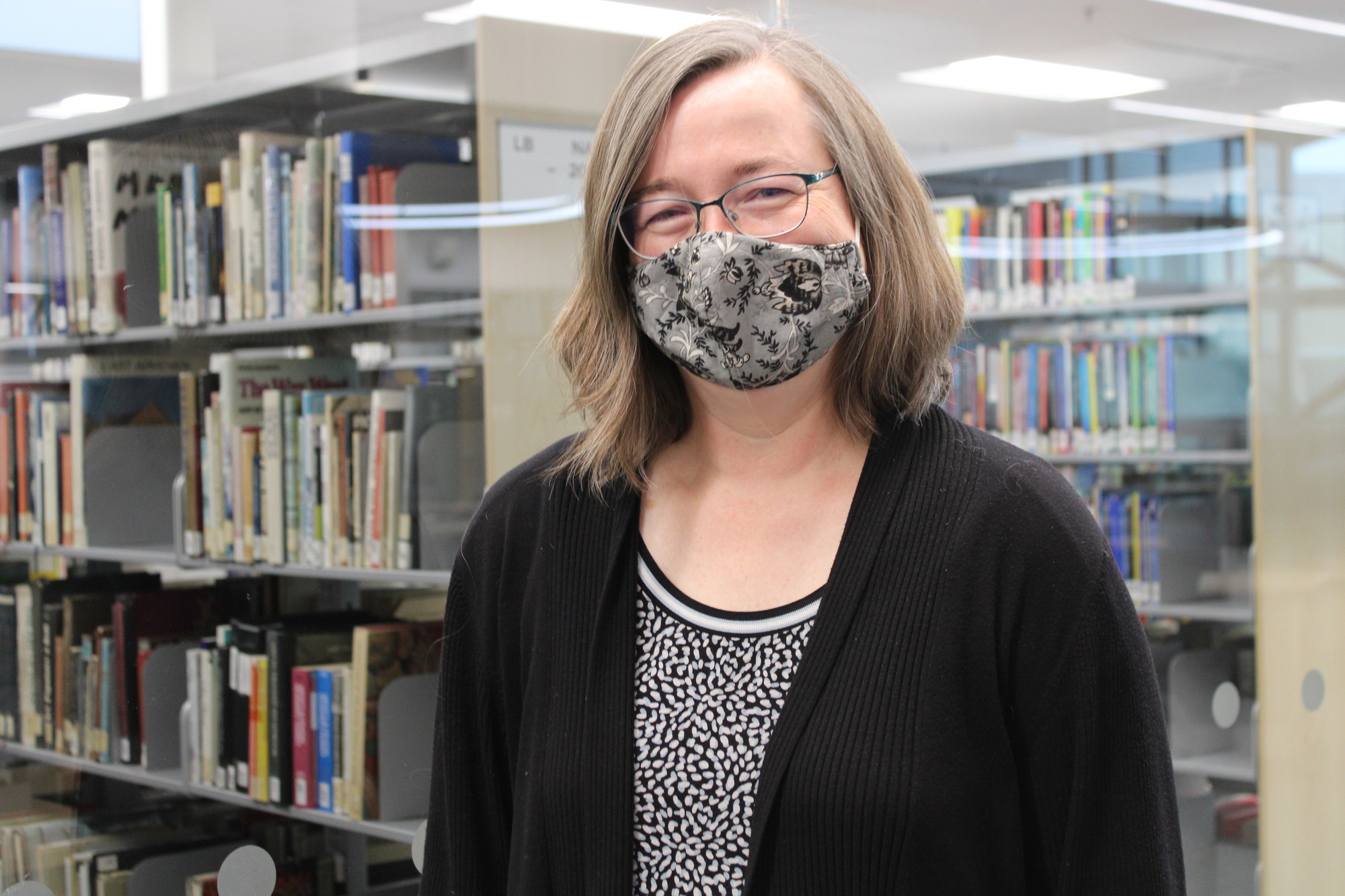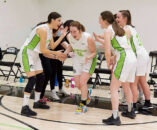For many of us growing up in the 1960s in rural Canada, the community library was a place of excitement and wonder. We would stop on our way home from school to pick up some books to read and after they were signed out, we left waving a cheery good-bye to the librarian.
Fifty years later the library in my hometown is in the same space, but that is the only thing that hasn’t changed. This library, like those in many other communities, has evolved to meet the needs of today’s clients with several computers, comfortable seating and worktables. It hosts community events as well as providing people the opportunity to sign out books.
Library staff receive formal training in library science as well as frequent training to upgrade skills. Algonquin College is one of many post-secondary institutions that educates and trains the librarians and library technicians of tomorrow.
Helena Merriam is the coordinator of the two-year Library and Information Technician program at the Ottawa campus of Algonquin College. She received a master’s degree in library and information science from the University of Western Ontario and taught at Seneca College and Mohawk College before joining the staff at Algonquin.

Helena Merriam a professor in the Library and Information Technician program at AC is shown at one of the service desks in the college library. Librarians and Library Technicians develop many different skill sets throughout their careers. Photo credit: Carol Goddard
In 2011, she received a Capital Educator Award from the Ottawa Network for Education which Merriam explained is “granted to educators across the Ottawa from school boards, colleges and universities in the Ottawa/Gatineau Region”. As a professor in the diploma program, she she says she strives “to be knowledgeable, stay current in the profession, be understanding and compassionate and, of course, have fun!”
I discovered through my conversations with Merriam that graduates of post-secondary library programs today will already have the knowledge I spent years learning while working. One area that is increasingly important in the field is learning about and supporting Indigenous reconciliation.
Merriam’s research examined the role of libraries in the colonization of Indigenous nations in Canada. Merriam says her sabbatical was “time to learn more, to educate myself and to learn from Indigenous people and colleagues in the library field from across Canada and around the world,” as the Truth and reconciliation Commission had published their report in 2015.
Her sabbatical research involved reviewing literature on Indigenous nations in Canada and examining how institutions such as libraries have played a role in colonization. She also looked at what libraries are currently doing to support reconciliation efforts with Indigenous people in Canada.
Merriam points to the Dewey Decimal System, an industry standard in book cataloguing. Decolonizing could include changes in the nomenclature used, such as replacing the word Indian with Indigenous and assigning Dewey decimal numbers to reflect the location of Indigenous nations throughout the world.
Merriam also investigated the role the library could play in the community to reflect “an Indigenous viewpoint of the world.”
After returning from sabbatical, Merriam began working with colleagues to change the curriculum and to “bring more awareness to students about the role libraries and library staff can play in addressing the harms of colonization and supporting resurgence of Indigenous cultures.”
Currently staff in the program are in the process of “changing and addressing our curriculum course by course,” says Merriam, to raise awareness and provide information to students, so they have the knowledge needed to make changes in their workspaces with peers. Future graduates of the library and information technician (LIT) program at Algonquin will have gained insight and education on Indigenous reconciliation in our country as they begin their careers.
Libraries, says Merriam, need to address the ways Indigenous people are portrayed in material to be purchased and determine their appropriateness for the library. The research and implementation plan Merriam created is expected to provide graduates from the LIT program at Algonquin with the necessary skills to ensure they serve their clients in all areas and types of libraries.
“Education is at the heart of (TRC) Calls to Action numbers 62 and 63 and libraries play a big role in reconciliation, with technical services, collection management, public and programming services” said Patricia Sutherland, Manager of Learning Commons Services for the Upper Canada District School Board in Eastern Ontario.

There have been significant changes to college libraries over the past thirty or forty years. Algonquin College's library is a multi-floor, multifuction library designed to meet the needs of educators and students in the years ahead. Photo credit: Carol Goddard
“Libraries can assist reconciliation in the provision of technical services by revising and customizing our rules and language in terms of cataloguing, subject heading and classification (call numbers) to better reflect the current and lived organization and expression of knowledge in Indigenous communities” says Sutherland.
In terms of collection development, she says, UCDSB is ensuring that collections “are representative, respect personal voices (who has the right to tell the story), comprehensive, free from derogatory terms or images unless used for teaching purposes and reflect Indigenous storytelling tradition.”
The library has also developed a “circle of support” that provides “a holistic, meaningful and engaging experience to Indigenous students (and this could be any Indigenous individual).”
Sutherland says that Learning Commons Informationists employed by UCDSB provide support to teaching staff by “booking appropriate cultural advisors for classroom visits, and providing resources to support not only classroom learning, but teacher confidence.”
I worked for over 17 years as a library technician and then a Learning Commons Informationist with the Upper Canada District School. Speaking with Merriam, I realized how the changes she described were ones that I had experienced. I went from typing card catalogue cards and manually checking out books to cataloguing and circulating books in Destiny, a library computer program. Collection development involved not only recommending book purchases, but also ensuring the resources, both online and in print, were appropriate and in keeping with the changing world.
Merriam explains that post-secondary library courses provide students with the opportunity to learn the skills they will need as they enter the real world of libraries. It was interesting to hear her speak on how the field of librarianship had changed over the years..
There are close to 100 students currently enrolled in the two-year LIT program at Algonquin. This includes students in information resource management (IRM) at Carleton University, a collaborative program with Algonquin College.
Sutherland says future library staff will be required to have strong communication and technology skills, and be able to resolve conflict. They will also “need to be comfortable with technology and continually learning and adapting practices.”
Graduates of today’s library programs will have “to be able to take the initiative in their work, speak up and share ideas, and be adapt at problem solving,” she adds.
Through education, today’s library staff will become more responsive to their communities, culturally and technologically, providing access to material in many different media, hosting educational events, training users on technological devices and assisting with new products, such as 3-D printers, as they are created.
Well-trained, flexible and knowledgeable library staff, educated at community colleges and universities, are truly fulfilling their roles as leaders on the pathway to knowledge.



